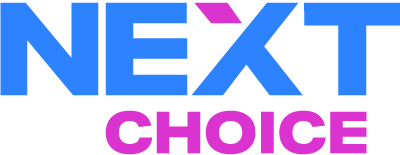How Can Digital Content Management Improve Business Efficiency?
In today's fast-paced digital landscape, effective content management plays a pivotal role in enhancing business efficiency. From streamlined workflows to improved collaboration, digital content management systems (CMS) offer tools that can revolutionize how businesses operate. Let's explore how implementing a robust digital content management strategy can lead to increased productivity and growth.
Understanding Digital Content Management
Digital content management involves organizing, storing, and managing digital content effectively. It serves as the backbone for efficient content creation and distribution, allowing businesses to maintain control over their data.
At its core, digital content management is about facilitating access while ensuring security. Companies increasingly rely on these systems to handle everything from internal documents to marketing materials. As data grows exponentially, so does the need for streamlined processes.
When implemented correctly, digital content management can transform the way teams work together. It integrates various functions, such as content creation, editing, and publishing, into a cohesive system. This ensures that everyone, regardless of their role, can contribute effectively.
Centralizing Information for Easy Access
A digital CMS centralizes information, providing a single source of truth. This accessibility minimizes time spent searching for content, enabling teams to focus on strategic tasks.
Imagine a scenario where your marketing team can effortlessly access graphics, branding guidelines, or past campaign data—all stored in one location. This eliminates confusion and miscommunication, allowing for a more agile approach to projects.
Moreover, a centralized repository supports remote teams by ensuring that information is always at their fingertips. Whether you're in the office or working from home, the ability to pull necessary resources quickly is invaluable.
This centralized approach also enhances compliance efforts. Companies can track document versions and ensure that everyone is working off the most current files. In turn, this reduces the risk of errors that can lead to inconsistent messaging or compliance issues.
Streamlining Collaboration Among Teams
With digital content management, teams can collaborate seamlessly in real-time, leading to faster decision-making and project completion. Enhanced communication tools facilitate sharing ideas and resources, ensuring everyone is on the same page.
Today's business environment thrives on teamwork. A good CMS breaks down silos between departments. For instance, content creators and marketers can work hand-in-hand using shared platforms that track revisions and outlines for upcoming campaigns.
Additionally, fostering teamwork through a digital CMS translates to improved morale. Team members feel more connected when they can contribute to projects instantly, regardless of geographic barriers. This contributes to a more cohesive workplace culture.
Improving Content Quality and Consistency
Digital content management ensures adherence to brand guidelines and quality standards, resulting in consistent messaging across all platforms. This uniformity strengthens brand identity and helps build trust with customers.
When all your content resides in a CMS, it’s easier to enforce quality checks and maintain standards. Compliance to these guidelines not only solidifies your brand’s reputation but fosters credibility in the eyes of your audience.
Moreover, with built-in templates and style guides, teams can save time on formatting and editing. This allows more focus on crafting compelling narratives rather than worrying about whether the content aligns with visual standards.
Enhancing Data Analytics for Better Decision-Making
Many digital content management systems offer integrated analytics tools that provide valuable insights into content performance. Understanding what works and what doesn't enables businesses to make informed decisions and optimize their strategies.
An analytical approach allows teams to assess user engagement, conversion rates, and audience behaviors. For example, if you notice that a specific type of content performs exceptionally well, you might invest more resources into creating similar assets.
Furthermore, leveraging these insights helps teams pivot quickly when needed. If a campaign isn't resonating with the target audience, data can reveal this early, allowing for timely adjustments.
At its best, analytics in digital content management empowers businesses to be proactive rather than reactive. This agility not only enhances efficiency but can significantly impact the bottom line.
Wrapping Up: Embrace Digital Content Management for Enhanced Efficiency
By leveraging digital content management, businesses can expect to see significant improvements in efficiency, productivity, and collaboration. These systems not only save time and resources but also empower teams to deliver consistent and high-quality content. Embracing digital content management is not just a trend; it's a necessary step towards future-proofing your business.

